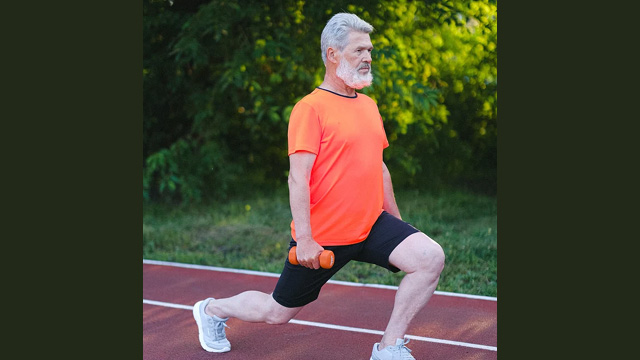
Well-being
Exercise may help lower age-related anxiety
Published:
১৯ ডিসেম্বর ২০২৩, ২০:১৯

researchers who evaluated findings from a multi-state study, gender, age, marital status, and money influence perceptions of exercise and ageing, but reframing messaging about both can lead to more healthy behaviours.
"As this large demographic ages, it's really important to support health promoting behaviors and have an approach that focuses on prevention -- not just treatment -- when it comes to chronic diseases. To do that, we need to know what their needs are and how best to address those needs," says Sarah Francis.
Francis holds many titles at Iowa State University: professor and Jane Armstrong Endowed Chair of Food Science and Human Nutrition, College of Human Sciences' interim associate dean for Iowa State Extension and Outreach and interim director for Human Sciences Extension and Outreach. But Francis introduces herself as a healthy ageing advocate, implementation scientist and registered dietitian.
In 2010, she joined a US Department of Agriculture multistate project that brought together experts in physical activity, clinical nutrition and community health programming to support healthy aging. Part of their research has focused on identifying factors that influence physical activity, like "aging anxiety."
Francis explains this anxiety encompasses fears and concerns about losing autonomy and relationships, physical and psychological changes, and discomfort or lack of enjoyment being around older people.
"Previous research has shown that if you have high anxiety about aging, you have poor health outcomes. But if you view it more positively as a life stage, you have better health outcomes. You're more likely to make lifestyle changes that benefit you in the long run," says Francis.
A cross-section of experiences, perspectives
To understand how aging anxiety relates to physical activity and other factors, like age, gender, marital status and income, the team designed a 142-question online survey and recruited participants through Qualtrics.
Francis explains they wanted a cross-section of urban, suburban and rural residents and included people as young as 40 to understand how different aspects of aging anxiety shift with age.
In total, 1,250 people from Washington, DC and six states, Iowa, Illinois, Maryland, Rhode Island, South Dakota and West Virginia, responded to the survey.
Among the original findings, participants who identified as African American had a higher interest in health-related programs.
The researchers followed up with another study, the results of which were published in September, to focus more closely on the responses of the 178 African-American survey participants.
With this subset, the researchers found the highest anxiety about aging was the fear of loss, which was greatest among people with low incomes and those who lived alone.
Women who were 40-49 years of age were more concerned about changes to their physical appearance than their male counterparts and participants in older age categories.
While rates of physical activity were lower compared to white survey respondents, African American participants overall had a positive attitude about physical activity, especially strengthening exercises.
"One of the most important findings is that higher positivity about physical activity relates to lower anxiety about aging," says Francis.
"Perhaps this is because the physical, mental and social benefits of staying active contribute to overall well-being and a more favourable perception of the aging process, ultimately reducing anxiety related to growing older."
In the paper, the researchers point to evidence that exercise, especially strength training, helps older adults conserve bone mass and muscle, reduce the risk of dementia and retain motor control.
They say the study results "can help to develop educational workshops to control aging anxiety while discussing the health benefits of [physical activity] participation."
Francis adds that many middle-aged and older adults face barriers to exercising. Some are afraid they'll get injured. Others don't have transportation to gyms or live in communities that lack safe sidewalks and parks.
To improve access, Francis and researchers from the multistate project aim to develop and test a virtual programme that would be community-based and delivered through Extension. It would include at-home physical activities and an educational component to encourage eating healthy and protein-rich foods.
"It's always important to listen to your audience. Doing this type of work helps ensure that the messaging will resonate with those you're trying to work with, and it's not a one-size-fits-all all approach," says Francis.



Comment: